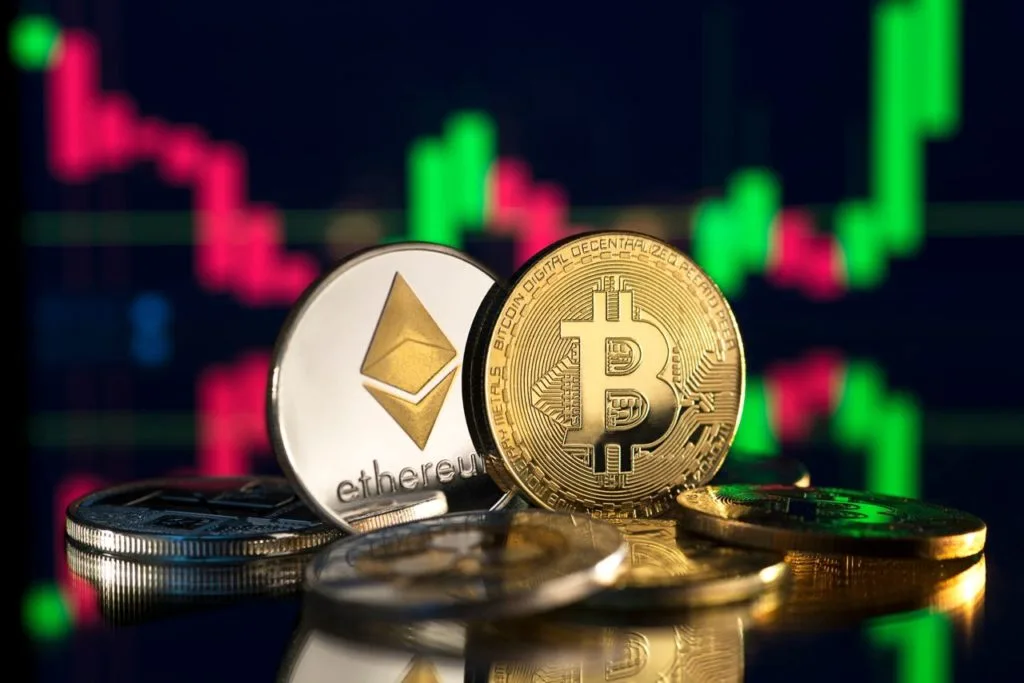U.S. Sovereign Wealth Fund Sparks Speculation on Bitcoin and Ethereum Inclusion
04.02.2025 14:00 1 min. read Alexander Stefanov
The U.S. government is taking an unexpected step in financial strategy with the creation of a Sovereign Wealth Fund, following an executive order from President Donald Trump.
While details remain unclear, the move is seen as an effort to strengthen the country’s economic future. Speculation is growing over whether Bitcoin and Ethereum might be included in its asset portfolio, signaling a potential shift in how digital assets are viewed at the national level.
This development coincides with ongoing trade tensions between the U.S., Mexico, and Canada, adding another layer of uncertainty to global markets. Amid this backdrop, Senator Cynthia Lummis is pushing for Bitcoin to be part of government reserves, advocating for a long-term strategy that would see the U.S. accumulate 1 million BTC over five years.
Meanwhile, the crypto market remains resilient. Bitcoin has surged past $101,000, with Ethereum holding strong near $2,849. Some analysts believe the government could consider digital assets as a hedge against economic instability. Eric Trump has also expressed optimism about Ethereum’s potential, fueling further speculation.
As markets react to shifting policies and trade discussions, the introduction of the Sovereign Wealth Fund raises questions about how the U.S. intends to navigate economic challenges. If cryptocurrencies become part of this strategy, it could mark a significant change in how the government approaches digital assets.
-
1
Trump’s Two big Bitcoin Moves: Key Catalysts or Just Noise for BTC Price?
08.07.2025 7:30 2 min. read -
2
Bitcoin Market Stalls as Profit-Taking, Whale Dispersal, and Sideways Action Define the Cycle
01.07.2025 20:00 3 min. read -
3
Speculation Surges as Binance BTC Futures Volume Tops $650 Trillion
04.07.2025 17:37 2 min. read -
4
Which Is the Next Bitcoin Price Target?
06.07.2025 20:00 2 min. read -
5
Dollar Weakness Signals Major Bitcoin Move Ahead, Data Suggests
09.07.2025 21:00 2 min. read
BitGo Files Confidentially for IPO With SEC
BitGo Holdings, Inc. has taken a key step toward becoming a publicly traded company by confidentially submitting a draft registration statement on Form S-1 to the U.S. Securities and Exchange Commission (SEC).
Public Companies Now hold Over $100 Billion in Bitcoin — 4% of Total Supply
According to new data shared by Bitcoin Magazine Pro, publicly traded companies now collectively hold over 844,822 BTC, valued at more than $100.5 billion, marking a historic milestone for institutional Bitcoin adoption.
Trump Media Holds $2B in Bitcoin as Crypto Plan Expands
Trump Media and Technology Group, the parent company of Truth Social, Truth+, and Truth.Fi, has officially disclosed that it now holds approximately $2 billion in Bitcoin and Bitcoin-related securities.
Crypto Greed Index Stays Elevated for 9 Days — What it Signals Next?
The crypto market continues to flash bullish signals, with the CMC Fear & Greed Index holding at 67 despite a minor pullback from yesterday.
-
1
Trump’s Two big Bitcoin Moves: Key Catalysts or Just Noise for BTC Price?
08.07.2025 7:30 2 min. read -
2
Bitcoin Market Stalls as Profit-Taking, Whale Dispersal, and Sideways Action Define the Cycle
01.07.2025 20:00 3 min. read -
3
Speculation Surges as Binance BTC Futures Volume Tops $650 Trillion
04.07.2025 17:37 2 min. read -
4
Which Is the Next Bitcoin Price Target?
06.07.2025 20:00 2 min. read -
5
Dollar Weakness Signals Major Bitcoin Move Ahead, Data Suggests
09.07.2025 21:00 2 min. read


